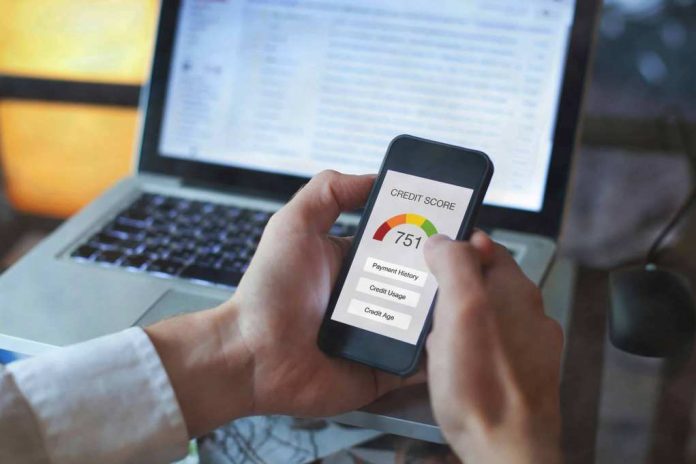
Countless Americans don’t know how to properly handle their credit. In fact, there are some statistics that show just how much of a problem this is. Sadly, 34.8% of Americans have scores between 580 to 669 while 11.1% of Americans have scores less than 550. While those are just the numbers for people that have scores that could use some serious improvement, that’s not all. There are 22% of Americans that do not even have a FICO credit score! This goes to show how many people could benefit from improving their score.
While many people can feel helpless when it comes to their credit, that doesn’t need to be the case. Instead, there are ways that people can better understand their score and improve it with some knowledge and patience. Hopefully this article will be able to guide you in the right direction to help you get your credit to the score you want and need!
Do You Understand Credit Scores?
Before learning about different ways that you can improve your credit, you must first have a clear understanding of your credit score. Your score is usually a number between 300 and 850. This score is calculated by credit bureaus (also known as credit reporting agencies). There are 3 major credit bureaus which are Experian, Equifax, and Transunion. When calculating your score, credit bureaus use information that is found on your credit reports. You have multiple versions of your credit reports depending on the bureau since lenders sometimes don’t report to all three bureaus.
Credit reports have information about your credit file, including your payment history, credit debts, etc. When calculating your score, credit bureaus use scoring models to determine how each item on your credit report will impact your score. There are two main credit scoring models. There is the VantageScore model and the FICO scoring model. However, the FICO model is more popular and is used by 90% of top lenders!
What Factors Impact Your Credit Score
Since the FICO scoring model is the more common option amongst lenders, that is what we will be using as reference for how these factors impact your score. There are 5 main factors! These factor are:
- History of Payments
- Credit Usage Ratio
- History of Credit
- Types of Credit
- Hard Inquiries
History of Payments
The most important factor of your score is your history of payments. This is the most impactful factor which accounts for 35% of your score. That includes your on-time payments, late payments, etc. This is the most important factor because it easily shows lenders your history of paying back the debts you borrow which helps them better understand the risk they face.
Credit Usage Ratio
Your credit usage ratio (also known as credit utilization ratio) is an important factor when it comes to your credit. That means that it accounts for 30% of your score. Your credit utilization ratio looks at the amount of credit you are using compared to your overall credit limit. For example, let’s say you have a total overall credit limit of $2,500. This total is the overall amount between one credit card that has a credit limit of $1,500 and a second credit card that has a credit limit of $1,000. If you are currently using $900 on one card and $475 on the second card then your current credit usage would be $1,375. This means your credit utilization ratio would be 55%.
History of Credit
Your history of credit is the third most impactful factor of your score. It accounts for 15% of your score. Your credit history includes the ages of your newest accounts, your oldest accounts, the average age of your accounts, and more. While this factor may not be at the top of the list, it is still something to be mindful of!
Types of Credit
Many people don’t realize that there are different forms of credit. There are two main types of credit! There are installment loans and revolving credit. Some examples of an installment loan would be a mortgage, an auto loan, etc. On the other hand, some examples of revolving credit would be a credit card. This factor accounts for 10% of your score!
Hard Inquiries
A hard inquiry is also known as a hard pull. Regardless of what you call it, it is the process of a lender getting an in-depth look at your credit file. Hard inquiries require written authorization from the consumer. Once a lender gets this access, they can review your credit file to determine whether or not you qualify for a loan or line of credit. Hard inquiries are different from soft inquiries because soft inquiries are only meant for pre-qualifying so they do not have an impact on your score and do not require written authorization.
What Kind of Score Do You Have?
Now that you better understand credit scores and the factors that go into creating them, you will want to have a better idea of where your score falls. Let’s circle back to the scoring models that credit reporting agencies use to calculate your score. Each scoring model has their own range and categorization of credit scores. For example, according to the FICO scoring model:
- Poor (scores between 300-579)
- Fair (scores between 580-669)
- Good (scores between 670-739)
- Very Good (scores between 740-799)
- Exceptional (scores between 800-850)
On the other hand, the VantageScore model has different categorizations of scores. According to the VantageScore model:
- Very Poor (credit scores that are between 300-499)
- Poor (credit scores that are between 500-600)
- Fair (credit scores that are between 601-660)
- Good (credit scores that are between 661-780)
- Excellent (credit scores that are between 781-850)
How to Check Your Score?
If you want to check your score there are plenty of ways to do that! You can:
- Check with your financial institution
- Use a third party app
Check with Your Financial Institution
One of the easiest ways to check your credit score is by checking with your financial institution. For example, if you have a Capital One credit card, you can use their online portal to view your credit score. It can tell you when it was last updated, show you a breakdown of your expenses and payments, etc.
Use a Third Party App
Another popular way that you can check your credit score is by using a third party app. There are a variety of apps that can check out your score. Some popular ones include Experian, Credit Karma, and Mint. However, not every app offers the same features so you will want to review your different options to find one you like!
Why is Your Credit Score Important?
Not everyone understands the true value of having a good credit score. However, having a good credit score can mean a world of difference. One of the biggest benefits to a good credit score is the amount that you can save in interest. Let’s look at some examples! According to Nerd Wallet, an individual that has a credit score of 620 compared to a person that has a credit score of over 760 would pay $65,000 more on a $200,000 mortgage. That’s thousands upon thousands of dollars that a person could save just by having a healthy credit score at the time they decide to get a mortgage!
Other benefits to a good credit score include better lending terms. For example, besides having lower interest rates they can have more flexible repayment terms, contract lengths, and financing options!
Understanding Different Ways to Handle Credit Repair
Now that you have a better understanding of what it means to have a credit score, you can work on improving yours. It can never hurt to focus on improving your score, even if your score is considered healthy. That’s because until you reach a perfect score of 850, then you still have room for improvement! There are plenty of ways that you can handle the process of credit repair. You can:
- Improve How You Manage Your Credit
- Get Help from a Credit Counselor
- Dispute Inaccurate Items on Your Credit Report
- Consider Credit Repair Companies
Improve How You Manage Your Credit
The first part of change is to identify bad credit habits. Many people may not even be aware that they are partaking in bad credit habits. However, you want to easily identify the bad habits that you want to break and the good habits that you want to follow. Understanding these habits can improve how you manage your credit.
Understanding Bad Credit Habits
Some examples of bad credit habits include:
- Ignoring your credit card statements
- Using your credit card too much
- Only paying the minimum due
- Making late payments
- Taking out cash advances
- Applying for credit that you don’t actually need
Ignoring Your Credit Card Statements
Sometimes people will get their credit card statement in the mail or via email and treat it like a piece of junk mail. However, they should be reading these statements every month that they get them because when you review your credit card statement, you can spot unauthorized charges and billing errors. Catching these errors can help you identify them early so that you can dispute them with your credit card issuer as soon as possible.
Using Your Credit Card Too Much
Keep in mind that your credit utilization ratios are an important part of your credit score. If you are using too much credit that can have a serious impact on your score. Having a credit utilization ratio over 30% can have a higher impact on your score. Unless you know for a fact that what you spend your credit on will be paid off in-full the following month then you want to avoid using your credit card too much.
Only Paying the Minimum Due
When your credit card payment is due, there is a minimum that your credit card issuer will require. However, paying the minimum can mean you end up paying more in the end with interest. It will also take more time for you to repay your bill.
Making Late Payments
Think back to when we told you what factors impact your credit score. At the top of the list was your history of payments. This is the most impactful factor of your score so having late payments can lower your score a lot! When you make late payments you may be subject to late penalty fees as well.
Taking Out Cash Advances
You never want to view your credit card as a source of cash. Especially since cash advances are one of the most expensive credit card transactions that you can do. That’s because they generally have high interest rates, cash advance fees, and no grace period for interest rates. Without a grace period, you would need to start being charged interest immediately.
Applying for Credit That You Don’t Actually Need
When there are promotional credit card deals that have special introductory rates, people can be caught up in the “good deal”. However, submitting too many credit card applications at once can lead to some trouble for your credit. That’s because people can get caught up and at one moment be doing well with their credit cards but then the next be struggling to handle multiple payments that are due at once!
Understanding Good Credit Habits
Besides bad credit habits to avoid doing, there are some good credit habits that you will want to follow. Some examples of good credit habits include:
- Keep your credit utilization ratio below 30%
- Pay your bills on-time and in-full when they are due
- Only apply for new credit when you need it
- Regularly keep an eye on your credit report
- Check your credit statements every month
Keep Your Credit Utilization Ratio Below 30%
One important way that you can get a better credit score is by keeping your credit usage low. If your credit utilization ratio is less than 30% then you will have a reduced impact on your credit score compared to having a ratio above that 30% limit. However, if possible, you would want to pay your entire credit card debt in-full every month! This can help you avoid dealing with interest rates.
Pay Your Bills On-Time and In-Full When They are Due
It is important to handle how you pay your bills properly. Even if you pay your bills on time but for less than the minimum amount due, it is still considered a late payment. That is why you will want to keep on track with consistent payments when it comes to your bills! The longer the credit history of good payments then the better off your score will be.
Only Apply for New Credit When You Need It
Having too many available lines of credit to use can mean a lot of trouble for people that struggle with self-control. That’s because they can find themselves with multiple new credit accounts at once, which means there are more opportunities for a line of credit to be overused. Having too many hard inquiries at once isn’t good for your score either!
Regularly Keep an Eye on Your Credit Report
Like we said earlier, you have the right to get a free copy of your credit report every year. That means you should take advantage of it! While you can check your report more than once a year, you should at least do the minimum. This can help you spot any errors which you can dispute!
Check Your Credit Statements Every Month
Besides monitoring your credit report, you will also want to review your credit card statements every month. That’s because it can help you identify unauthorized charges that you may need to dispute with your card issuer.
Get Help from a Credit Counselor
Besides understanding how to improve how you handle credit on your own, you can also get help from a credit counselor. According to the Consumer Financial Protection Bureau (CFPB), credit counselors are professionals that are trained and certified in plenty of different areas of personal finance. They can help with a variety of issues like:
- Budget
- Consumer Credit
- Debt Management
- Money Management
What Types of Services Can Credit Counselors Provide?
While every credit counseling organization is different, there are some common ways that credit counselors can help people. They can:
- Give advice on how you should manage your finances
- Assist you with developing a budget
- Help you get a free copy of your credit report and understanding your credit score
- Offer educational materials
- Offer workshops
- Create a debt management plan of action
How to Find a Credit Counselor?
If you are interested in finding a credit counselor, it may be easier than you think. You can begin your search for a credit counselor by visiting the website of the Financial Counseling Association of America (FCAA). However, you can also give them a call at 800-450-1794. Another place that you can try is the website for the National Foundation for Credit Counseling (NFCC). You can also give the NFCC a call at 800-388-2227.
From these sources you should be able to get a list together of credit counseling organizations that you may want to check out. You can also confirm the organizations you want to try with your state attorney general and state consumer protection agency. They can provide you details and information on the credit counseling services!
Popular Credit Counseling Organizations
While you can review different options on your own, there are some popular ones that people like to go to. This can help you get a list together as well! Some popular credit counseling organizations include:
- GreenPath
- Cambridge Credit Counseling
- Apprisen
- InCharge Debt Solutions
- Clearpoint Credit Counseling
- American Consumer Credit Counseling
Dispute Inaccurate Items on Your Credit Report
When you get a free copy of your credit report, you will want to review it to see if there are any errors. If you find an inaccurate item on your credit report, then you can submit a dispute to one or all of the major credit bureaus. When submitting your dispute you can do it either online or through the mail. Once the credit bureau receives the dispute, they will need to investigate it. Typically they have 30 days to investigate and respond. However, they may have more time if it’s a special circumstance.
When submitting a dispute you will need to provide personal information like proof of identity You may even benefit from including proof of the inaccuracy like a transaction number that shows a payment was made on-time. If you see inaccurate items like accounts you didn’t open you may be dealing with a bigger issue like identity theft.
If you are a victim of identity theft then you will want to make sure you not only notify the credit bureaus but also alert the proper authorities. Identity theft is a crime so if you are a victim of this offense then you will want to get in touch with your local law enforcement office.
What if You Don’t Agree with the Results of the Dispute Investigation?
Sadly, the dispute process may not go as you expect. Your dispute may be considered correct as reported according to your credit bureau. Typically that means that the lender confirmed that the item should remain unchanged. If you do not agree with the outcome then you are still not out of luck just yet! There are options that you can consider. You can:
- Get in touch with your lender directly to see if there’s anything they can do on their end for the correction
- File another dispute with a credit bureau and provide additional documentation of how the item is inaccurate
- Make sure you add in a statement of dispute on your credit report. This can show lenders that you disagree with an item that is on your report.
- File a complaint with the U.S. Consumer Financial Protection Bureau (CFPB)
- File a complaint with your state’s attorney general’s office
Consider Credit Repair Companies
Finally on this list of ways to handle credit repair is hiring a credit repair company. Credit repair companies are organizations that handle the dispute process on your behalf and provide credit repair services. That means that they would be the ones to:
- Get a copy of your credit report
- Review your credit report for any inaccurate items
- Submit a dispute to the credit bureaus on the inaccurate items that they found
However, it is important to note that these companies provide a service that a consumer can do on their own. They advertise that their help can support consumers by saving them time and effort on the dispute process.
One popular method that credit card companies do is called “jamming”. Jamming refers to the process where credit repair companies will submit repetitive and oftentimes trivial letters to the credit bureaus and even their data furnishers. The idea behind this tactic is that if the credit repair companies can send enough letters that challenge the same item, then the credit bureau, lender, debt collector, etc., cannot properly process the dispute within the timeframe specified by the Fair Credit Reporting Act (FCRA). That timeframe is the 30 day period (but can be more than that with special circumstances).
How Much Does Credit Repair Cost?
Unlike the other options on this list, credit repair companies can be a bit pricey. First, it is important to keep in mind that the payment structure for credit repair companies will vary based on the organization you choose to go to. However, you can generally expect two different ways that credit repair companies will charge a consumer.
The first way would be similar to a monthly subscription service. In this payment model, the credit repair company would charge you every month for the services they performed for the previous month. That’s because they can’t charge you for services they didn’t perform under the Credit Repair Organizations Act (CROA). With this repayment option, the monthly fee would typically be between $50 and $100 every month (but some can be more or less than that).
The second way would be a repayment structure known as “pay per delete”. When you have a pay per delete repayment method, the credit repair company would only charge you for the item that they were able to successfully get removed from your credit report.
Do Credit Repair Companies Work?
There is a lot of controversy around credit repair companies. That is because there are scams in the industry, and the industry is steadily decreasing in size. While some companies claim that they have been able to successfully remove millions of negative items, it’s hard to find statistics to back those claims up. Since these are companies that charge a fee for a service that you can do on your own, it is best to handle the process by yourself. You could even get help from a professional like a credit counselor if you need some guidance on the process!
How to Verify Credit Repair Companies
If you are still interested in hiring a credit repair company, you will want to make sure they are legit! One of the best ways to do this is by making sure they are compliant with the Credit Repair Organizations Act (CROA). This act details what is and isn’t allowed for these companies. You may be dealing with a scam company if they do not follow the regulations within the CROA. Some things you want to beware of include:
- They request payment upfront
- There are promises of removing all negative items from your credit report even if they are accurate
- They cannot answer the questions you have about contract terms, pricing, etc.
- Lying about the services they provide
- Requesting that you lie, misrepresent yourself, etc.
List of the Best Credit Repair Companies
While you will want to do your own research on credit repair companies, there are some popular ones that many people go to. Some popular credit repair companies include:
- Credit Saint
- Lexington Law
- Sky Blue
- The Credit People
- Ovation Credit Repair
What is a First Work Fee for a Credit Repair Company?
When dealing with credit repair companies, you may come across a first work fee. A first work fee (also known as an initial audit fee or a discovery fee) is basically a startup fee that a company charges. While a first work fee may sound like it violates the CROA rule that credit repair companies cannot charge you for services you haven’t received, it actually doesn’t. That’s because technically initial sign up fees like a first work fee is collected after a credit repair company completed some initial work on your behalf. That means you would be paying the first work fee for a service they provided. Still, companies that are charging many fees for a service you can do on your own is something you should be wary of!
Frequently Asked Questions
Credit repair can be confusing for people. If you feel that way, you’re not alone! Luckily, other people have had questions when learning about credit repair that you may have too. Hopefully the questions below can provide you some more context and help sum up some of the information you just read.
What are the Ways that You Can Handle Credit Repair on Your Own?
To sum up, there are four main ways that you can handle credit repair. You can:
- Improve How You Manage Your Credit
- Get Help from a Credit Counselor
- Dispute Inaccurate Items on Your Credit Report
- Consider Credit Repair Companies
However, out of the options on this list, technically only 2 are ones that you can do on your own. Improving how you manage your credit and disputing inaccurate items on your credit report are the two ways that you can handle credit repair on your own. While getting help from a professional like a credit counselor may not be a solo job, but it can help lead you in the right direction on your own. The only item on that list that requires third party help is considering credit repair companies.
What is the Fair Credit Reporting Act (FCRA)?
We brought up the FCRA a couple times in the article, so it is important that you have a clear understanding of this piece of law! This law was passed in 1970 as a way to help consumers get a better understanding of how they can better handle their credit and how their credit impacts factors of life like getting a home, buying a car, etc.
There are some key points in the FCRA that can help consumers! Some of the protections and rights that consumers get under the FCRA includes:
- The right to know whether or not information on a consumer’s credit file will impact the decision of an application for credit, insurance, or employment
- A free annual credit report (also known as a file disclosure)
- Restricted access to your credit report by individuals or entities other than yourself (that’s why they need hard inquiries to request that access!)
- The right to dispute inaccurate information on your credit report
- The ability to opt out of prescreened credit offers that you may receive
- Security freeze capabilities on your credit report so they cannot check your credit file until you lift the freeze or provide a specific pin code.
What is the Credit Repair Organizations Act (CROA)?
Another piece of legislation that we talked about was the CROA. This law was a piece of the Consumer Credit Protection Act of 1968. This piece of legislation is pretty easy to understand! Generally, you can understand some of the protections in 5 basic practices. These 5 practices are:
- All statements that credit repair companies make about a consumer’s credit file to the credit bureaus, creditors, etc., must be true.
- Credit repair companies cannot advise the consumer to make false or even misleading statements
- It is illegal to change a consumer’s identity or advise consumers to change their identity in order to get rid of their bad credit
- Credit repair companies cannot make false or misleading claims about the services they provide
- Companies are not allowed to charge fees for services they have not provided. A company has to do something in order to charge the consumer
Is Credit Repair Legal?
It is legal to work on repairing your credit anywhere in America! However, there are some special rules to be mindful of. For example, while it is not illegal to get credit repair services as a consumer in Georgia, it is against the law and a misdemeanor offense to operate credit repair companies. However, there are some exceptions to this law! If the credit repair service is performed by either a lawyer or a non-profit then they will be able to operate these types of companies. Georgia is the only state in America that has this type of legislation around credit repair companies.
Are Credit Monitoring Services Free?
A good credit habit to get into is to regularly monitor your credit. Credit monitoring services can help consumers by providing them an early notice of potentially fraudulent items on their credit report. Credit monitoring services can help people stay on top of their credit so that they are vigilant for any issues that can arise. Luckily, basic credit monitoring services are free! For example, if you want to check with your financial institution, or use a third party app like Credit Karma then you shouldn’t expect to pay. However, if you want to opt for premium credit monitoring services then you may deal with fees that typically fall between $8.99 to $39.95 a month.
What to Consider When Choosing a Credit Monitoring Service?
There are some factors that you will want to keep in mind when looking at your different credit monitoring services! Some of these factors include:
- Cost
- The amount of credit bureaus monitored
- The scoring model they use
- Whether or not they scan the dark web
- Whether or not they have identity theft insurance
What are Some of the Best Credit Monitoring Services?
There are a variety of different credit monitoring services that are available for people to use. The best credit monitoring service for you will depend on your preference, goals, and current situation. A helpful tip is to also keep in mind the factors listed above when reviewing your credit monitoring options! Some of the best credit monitoring services include:
- CreditWise® from Capital One
- Experian free credit monitoring
- IdentityForce®
- Privacy Guard™
- FICO® Advanced
Remember, there are a variety of credit monitoring services available. The ones on this list are just to name a few!
What are Credit Score Recovery Programs?
When reviewing ways to handle credit repair, you may come across the term credit score recovery programs. It is important to note that there are no actual “programs” that offer credit score recovery services. Instead, very rarely credit score recovery programs is a term used to describe credit repair services like handling disputes.
Credit score recovery programs can refer to credit repair services that are offered by credit repair companies. To remind you, credit repair companies are organizations that handle the dispute process on your behalf. If you are interested in getting help from credit repair companies then you can ask them about what credit score recovery programs (also known as credit repair services) that they may provide.
How to Understand the Difference Between Soft Inquiries and Hard Inquiries?
When learning about the factors that impact your credit, we briefly touched on hard inquiries and soft inquiries. However, understanding the difference between these credit inquiries can be confusing for people. Luckily, it doesn’t have to be! You can easily understand the difference between soft inquiries and hard inquiries.
Soft inquiries are a type of credit inquiry that do not have an impact on your score because they are only used to prequalify an individual. Instead of providing lenders and creditors an in-depth look at your credit file, they provide a much less invasive view. While they may not be 100% up-to-date, they are able to provide a ballpark range of where your score lies and what you may be able to qualify for.
On the other hand, there are hard inquiries. Hard inquiries, also known as hard pulls, are a way that a lender or creditor can get an in-depth look at your credit file. Regardless of what you call them, they require written permission from the consumer to allow other entities to access this information. Once they are granted access, they can review your credit file in order to determine whether or not you qualify.
How Long Does Credit Repair Take?
There is no clear cut answer to this question because it varies based on the situation. For example, if your credit utilization ratio is too high one month, then paying that down can lead to a score improvement by the next month! However, if you are submitting a dispute to the credit bureaus then that process can take between 3 to 6 months. On the other hand, if there are accurate negative items on your credit report that cannot be removed then you would need to wait for them to fall off which can take up to 10 years depending on the item!
How to Handle Credit Repair if You are a Victim of Identity Theft?
It’s one thing to dispute a hard inquiry that was accidently sent through to your credit report more than once. However, if you believe you are a victim of identity theft then you’ll want to handle this more seriously. There is a 6 step process that can help you structure your plan to handle your credit if you’ve been a victim of identity theft:
- Take Action ASAP
- Signal a Fraud Alert on Your Credit Reports from the Three Major Credit Bureaus
- File an Identity Theft Police Report
- Close Any Revolving Credit Accounts That were Impacted
- Dispute the Inaccurate Items with the Credit Bureaus
- Consider Premium Credit Monitoring
When Do Negative Items Fall Off Your Credit Report?
We said earlier that negative accurate items can take up to 10 years to completely fall off your credit report. However, it’s important to know that different negative items have different timelines for how long they will actually stay on your report:
- Hard inquiries fall off after 2 years
- Money owed to the government falls off after 7 years
- Money guaranteed to the government falls off after 7 years
- Late payments fall off after 7 years
- Foreclosures fall off after 7 years
- Short sales fall off after 7 years
- Collection accounts fall off after 7 years
- Chapter 13 bankruptcies fall off after 7 years
- Judgements either fall off after 7 years, or until the state’s statute of limitations expires (whichever is longer)
- Unpaid taxes either fall off after 7 years from the last paid date or indefinitely
- Unpaid student loans either fall off after 7 years from the last paid date or indefinitely
- Chapter 7 bankruptcies fall off after 10 years
If you have any questions about other negative items not on this list then you will want to get in touch with a professional like a credit counselor. They can provide more information as to when an item can fall off your report.
How Many Different Credit Reports Do You Have?
Many people don’t realize that they have multiple credit reports. That’s because not all information is reported to every credit bureau. This means different bureaus will have different versions of your credit reports.
Credit reports can be tricky to understand, especially if you aren’t used to handling or actively monitoring your credit reports. However, they don’t have to be! Credit reports contain information about your credit file. Information found on your credit reports can include details like your on-time payments, late payments, types of credit accounts, etc.
Sometimes, people like to get multiple credit reports every year. However, getting multiple credit reports can mean paying some additional fees since consumers are only allowed one free credit report annually. If you are interested in getting multiple credit reports throughout the year, then that’s important to keep in mind!
Credit reports are a great way to have information about your credit file together in one place. While you may have different credit reports depending on the credit bureau, you will want to try to review all three of them at some point!
What is the Consumer Financial Protection Bureau (CFPB)?
One of the organizations we mentioned earlier in the article was the Consumer Financial Protection Bureau (CFPB). The Consumer Financial Protection Bureau is an organization that aims to help consumer financial markets work for consumers, responsible providers, and the overall economy.
Bottom Line
Let’s sum up everything that was in this article! You were able to get a better understanding of what it means to have a credit score. Your score is a number that generally falls between 300 and 850. This score is what lenders use in order to better understand how you are as a borrower. There are 5 main factors that impact your score which are:
- History of Payments
- Credit Usage Ratio
- History of Credit
- Types of Credit
- Hard Inquiries
You can check your score for free by either checking with your financial institutions, or using a third party app. Unless you have a perfect score of 850, there is room for improvement. There are plenty of ways that you can handle the process of credit repair and recover your score. You can:
- Improve How You Manage Your Credit
- Get Help from a Credit Counselor
- Dispute Inaccurate Items on Your Credit Report
- Consider Credit Repair Companies
The best way to repair your credit will depend on your current situation. If you need some guidance you can get in touch with a credit counselor or your local personal banker. However, your situation may not be as hopeless as it feels!
Article References
https://review42.com/resources/how-many-people-have-bad-credit/
https://www.ficoscore.com/about
https://www.nerdwallet.com/article/finance/great-credit-powerful-tool
https://www.thebalance.com/bad-credit-habits-960077
https://www.experian.com/blogs/ask-experian/what-are-good-credit-habits/
https://www.consumerfinance.gov/ask-cfpb/what-is-credit-counseling-en-1451/
https://www.thebalance.com/best-credit-counseling-services-5073952
https://www.experian.com/blogs/ask-experian/how-long-does-it-take-to-complete-the-dispute-process/
https://www.experian.com/blogs/ask-experian/how-do-credit-repair-companies-work/
https://balancingeverything.com/credit-repair-statistics/
https://www.lexingtonlaw.com/education/credit-repair-companies
https://money.com/best-credit-repair-companies/
https://www.forbes.com/advisor/credit-score/credit-repair/
https://www.investopedia.com/terms/c/credit-repair-organizations-act-croa.asp
https://www.debt.com/credit-repair/law/croa/
https://consumer.georgia.gov/consumer-topics/credit-repair
https://www.prnewswire.com/news-releases/the-georgia-experiment-has-failed-301206547.html
https://www.cnbc.com/select/best-credit-monitoring-services/
https://www.cnbc.com/select/best-credit-monitoring-services/
https://creditwise.capitalone.com/home
https://www.experian.com/consumer-products/credit-monitoring.html
https://www.identityforce.com/
https://www.debt.com/credit-repair/how-long-does-credit-repair-take/
https://www.dovly.com/post/how-do-i-fix-my-credit-after-identity-theft
https://www.bankrate.com/personal-finance/debt/when-does-old-debt-fall-off-credit-report/
https://www.consumerfinance.gov/about-us/the-bureau/




























